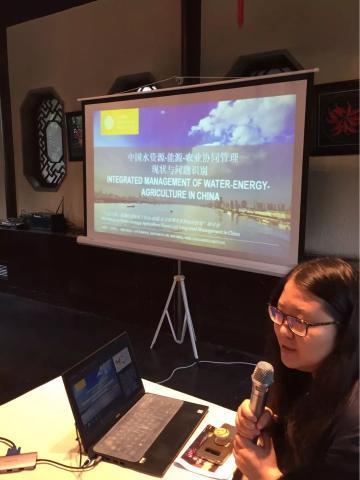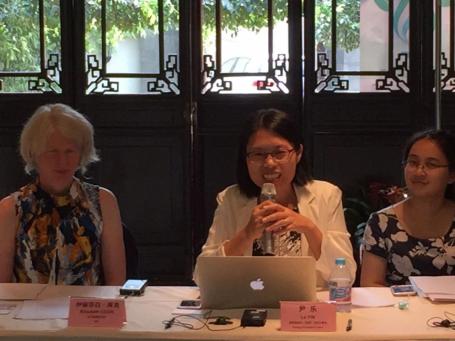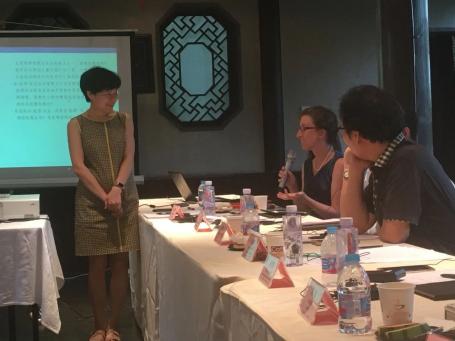Workshop on Water-Energy-Agriculture Nexus and Coordinated Management in the Context of Promoting Ecological Progress and Low-Carbon Transition Held in Beijing
As climate change intensifies, any factor change in the nexus of water, energy and food planting will cause ripple effects on other sectors, and thus resulting in national, regional or even global security problems. Economic and population growth has driven up demand for energy, food and water. Meanwhile, energy and agricultural development is also constrained by water resources. As the largest developing economy in the world, China faces the most severe challenges. The country has vowed to shift from the traditional development approach of overexploitation of natural resources to a strategy of multiple planning integration, under which industrial layout is designed according to environmental capacity.
In order to identify the status and trend of domestic water-energy-agriculture coordinated management from the perspectives of policy and research, the World Resources Institute (USA) Beijing Representative Office conducted the research on water-energy-agriculture nexus with the support of the ClimateWorks Foundation and the Energy Foundation (USA) Beijing Office. On August 26, it held the Workshop on Water-Energy-Agriculture Nexus and Coordinated Management in the Context of Promoting Ecological Progress and Low-Carbon Transition in Beijing. The workshop discussed the challenges faced, crucial measures and technologies needed and specific research approaches to be applied in the coordinated management of the three sectors. Elizabeth Cook, WRI's Vice President for Institutional Strategy and Development, hosted the workshop. More than 20 senior experts from government agencies, research institutions and international organizations attended the workshop and shared insights.

FU Xiaotian, Acting Director for China Water Program at WRI Beijing Representative Office, showed the problems identified in the research on water-energy-agriculture nexus and coordinated management, by sharing the outcomes of the water stress map. She also reviewed relevant national policies and domestic and foreign studies on water-energy-agriculture nexus, and summarized the highlights and policy opportunities.

WANG Tao, China Strategist at the ClimateWorks Foundation, introduced domestic and foreign research on water-energy nexus and on water stress. He hoped to utilize the water-energy-agriculture nexus as a bond to develop a strategic decision-making tool and a guiding framework for policy research that covers water, energy and agriculture, and find a way to balance the development of water, energy and agriculture in China’s economic transition.

YIN Le, Director for Environmental Management Program at the Energy Foundation (USA) Beijing Office, believed that energy share the same root causes with many environmental problems. Water, energy and agriculture can generate great synergy effects. The coordinated development of the three sectors can promote both sustainable energy development and environmental protection. The research on water-energy-agriculture nexus in China is still in its infancy, and experts from various sectors need to work together to deepen relevant studies.

The roundtable session was hosted by Dr. ZHONG Lijin, Special Assistant to President at the Energy Foundation (USA) Beijing Office. Scholars present at the workshop expressed their views and discussed how to identify best research angles in the development process of water, energy and agriculture and generate greater policy influence to achieve sustainable development. Scholars also held in-depth discussions on how to promote crucial policy and economic measures on water-energy-agriculture coordinated management.
Experts at the workshop held that water, energy and food are all strategic and fundamental resources. The three resources face challenges of inadequate supply, uneven distribution and low efficiency of utilization. In the context of promoting ecological progress, this is the right moment to conduct relevant research on water-energy-agriculture nexus and coordinated management. By attaching importance to the coordinated management, we could generate great synergy effects. Now China has established key R&D programs. Water-energy-agriculture coordinated management is very complex as it involves multiple factors. We should focus on development targets of various industries, and on the alignment between national climate change and green and low-carbon strategies. We can select representative regions to carry out key research and pilot programs. Meanwhile, as greater importance is attached to water-energy nexus, water-agriculture nexus and water-energy-agriculture nexus, and as relevant studies increase at home and abroad, we should focus on localizing those models mostly applied around the globe and on developing tools to support decision making that are suitable for China’s national conditions.
As water-energy-agriculture nexus and coordinated management involves a wide range of issues, participants at the workshop called on all experts across the sectors to collaborate with each other to identify more scientific solutions and policy recommendations.